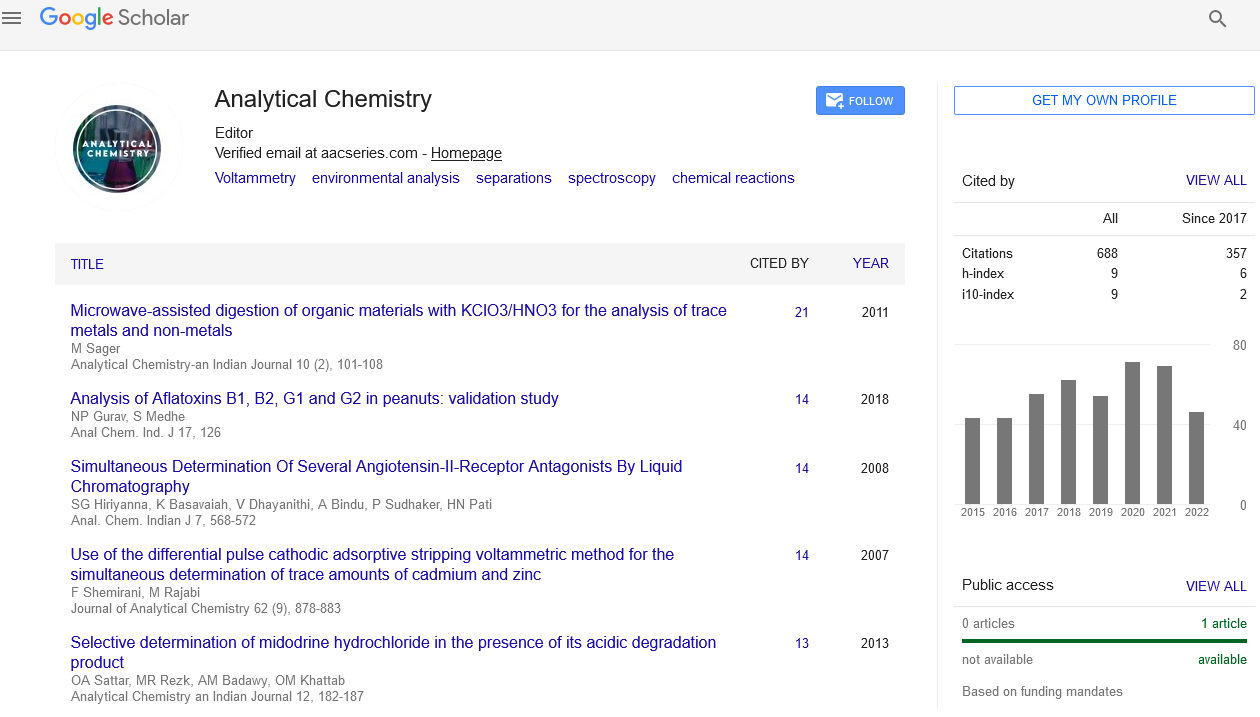Abstract
Quantitative estimation of K2Cr2O7 salt using iodo-potentiometric technique of analysis
Author(s): N.Suma, T.Jeevananda, O.G.PalannaIn the present paper, quantitative estimation of an analyte solution of potassiumdichromate is carried out using iodo-potentiometric technique, a method in which both potentiometric and iodometric titration results are obtained simultaneously in a two -in - one potentiometric cell. The basic principle involved is the reduction of Cr6+ (oxidizing cation) of K2Cr2O7 to Cr3+ state by I- (reducing agent). The free I2 liberated is titrated with standard sodium thiosulphate using iodo-potentiometric technique; and the end points of both and volumetric (iodometric) titrations are obtained in a two-in-one cell set up. Interestingly, a quantitative relationship is observed between the potentials, EM, and the volumes of standard sodium thiosulphate consumed (at the end point) in potentiometric and volumetric titrations. These potentials, EM, measured are again found to have a linear relationship with the concentrations (N) of the K2Cr2O7 samples taken. The titre volumes standard sodium thiosulphate (v1 and v2,ml) of both potentiometric and iodometric methods are identical. In the light of the above relationships observed, quantitative the estimation of K2Cr2O7 is possible by considering the redox chemistry of Chromium(Cr6+) and I- in terms of their standard reduction potentials. An excellent conformity of results are observed for potentiometric, iodometric and volumetric (oxidometry) titration data for the estimation of K2Cr2O7 analyte.

